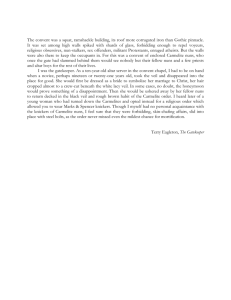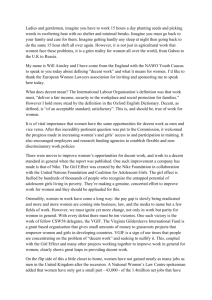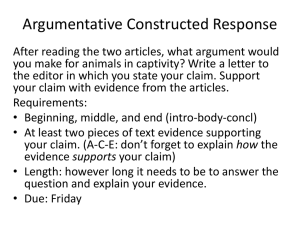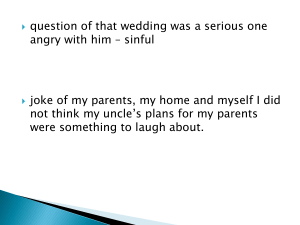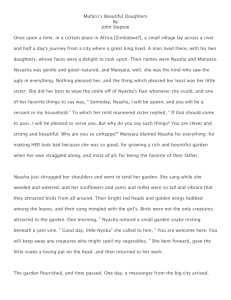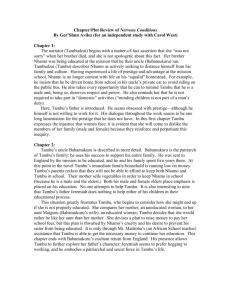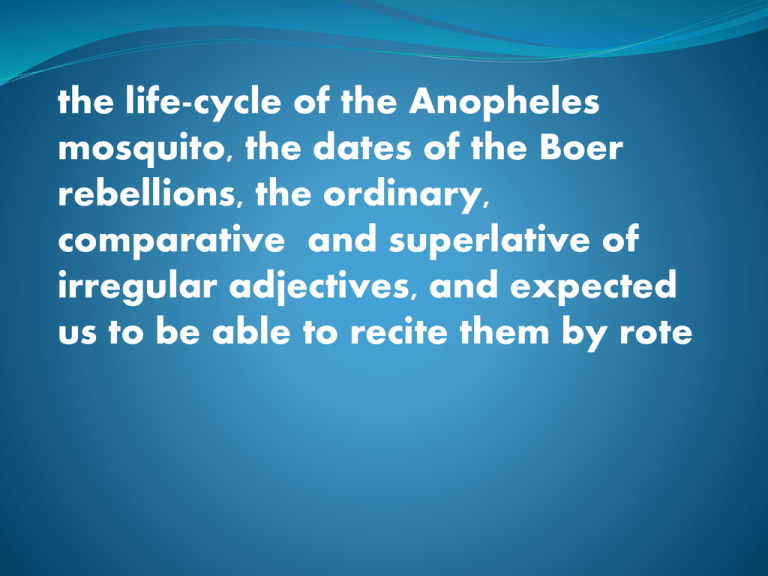
the life-cycle of the Anopheles
mosquito, the dates of the Boer
rebellions, the ordinary,
comparative and superlative of
irregular adjectives, and expected
us to be able to recite them by rote
sparkling Kombi. But ours was a Protestant mission.
We had no knowledge of nuns except as spiritual,
chaste beings who dedicated their pious, prayerful
lives to the service of God. This, we knew, was why
the Roman Catholic Church was superior to our
own: it created such virtue. Thus, when the nuns
came to the mission and we saw that instead of
murmuring soft blessings and gliding seraphically
over the grass in diaphanous habits, they wore
smart blouses and skirts and walked, laughed and
talked in low twanging tones very much like our
own American missionaries did, we were very
disappointed.
Seeing them close up like that, finding out how
ordinary they were, exploded most of the myth
about them, or at least the parts that mattered,
since the question of sex was not an obsession
with us, and anyway we had no way of judging
their chastity.
But it was not all disappointing. They lived
up to part of their promise by smiling
beatifically over us as Mr Sanyati showed
off our talents.
Of course I was chosen first to recite a
poem. ‘Hamelintown’sin
BrunswickbyfamousHanoverCity,’ I began,
raising a gasp of admiration from my
class, who knew I was bright but not quite
that bright, not bright enough to have
learnt such a long poem, one they had
never heard of before,
Then we danced for the nuns, in a
circle, singing and clapping our hands.
After that we subjected them to a play.
They enjoyed it all tremendously.
herded all the girls in Grade Seven A into the
classroom to answer questions about Louisa M. Alcott
and Little Women, to multiply seven acorns by twentythree acorns by forty-eight acorns by no acorns and to
pick the odd item out in a set of gumboots, galoshes,
snow shoes and bedroom slippers.
I was delighted that people, white people for
that matter, thought my background was
interesting.
I thought I should tell them about
Babamukuru as well, to show them that my
family had a progressive branch, but they
were more interested in my own father and
my life on the homestead.
Apparently what they did was this: they
took you to school and after your Form Two
they persuaded you to join the order. Their
methods were not particularly subtle.
Further scholarships were offered and it was
made clear that refusal indicated a
damnable lack of grace.
A prestigious private school that
manufactured guaranteed young ladies.
a tailor-made two-piece linen suit with
gloves, yes, even with gloves! We all
wanted to go. That was only natural.
We stopped liking each other as much as
we used to in case the other was offered
the place and we had to suffer the pangs
ofjealousy while she rose in status and
esteem.
It wasn’t fair, we thought, which
was true; but then nothing about
that examination had been fair .
Nobody else had prepared for the
test, whereas I had been
preparing ever since I came to the
mission.
With Nyasha’s various and exotic library to
digest, with having to cope with her
experimental disposition, her insistence on
altematives, her passion for transmuting the
present into the possible; having to cope
with all this, which I did at a purely
intellectual level, not because I thought it
was rational but because it was amusing
and I loved my cousin and admired her,
having coped with these intellectual
challenges for close on two years, I was far
ahead of my peers in both general
knowledge and general ability.
I performed brilliantly in that
entrance examination, thereby
earning the privilege of
associating with the elite of that
time, the privilege of being
admitted on an honorary basis
into their culture.
Of course, I did not appreciate the gravity of my situation at that Time....
She could not hide, did not even try to hide, her disappointment when I
told her how thrilled I was, what an experience I would have, what an
opportunity it was, how I intended to put that opportunity to maximum
use. She thought there were more evils than advantages to be reaped
from such an opportunity. It would be a marvellous opportunity, she said
sarcastically, to forget. To forget who you were, what you were and why
you were that. The process, she said, was called assimilation, and that was
what was intended for the precocious few who might prove a nuisance if
left to themselves, whereas the others — well really, who cared about the
others? So they made a little space into which you were assimilated, an
honorary space in which you could join them and they could make sure
that you behaved yourself. I would be comfortable in such a position, she
remarked nastily, because look how well I had got on with Babamukuru.
But, she insisted, one ought not to occupy that space. Really, one ought to
refuse. In my case that meant not going to the nun’s mission. ‘You’ll fall
for their tricks,’ she said, pointing out that I would obtain a much more
useful education at the mission.
everybody knew that the
European schools had better
equipment, better teachers, better
furniture, better food, better
everything. The idea that anything
about our mission could be better
than theirs was clearly ridiculous.
If you were clever, you slipped through any
loophole you could find. I for one was going to
take any opportunity that came my way. I was
quite sure about that; I was very determined.
The latest opportunity was this one of going to
the convent. I would go. I was sure of myself. I
was not sceptical like Nyasha. How could I
possibly forget my brother and the mealies, my
mother and the latrine and the wedding? These
were all evidence of the burdens my mother
had succumbed to. Going to the convent was a
chance to lighten those burdens by entering a
world where burdens were light. I would take
the chance. I would lighten my burdens. I would
go. If Babamukuru would let me.
There’s more to be done than
that.’ This was typical of Nyasha,
this obstinate idealism. But she
could afford it, being my affluent
uncle’s daughter. Whereas I, I had
to take whatever chances came
my way.
But I feel that even that little money
could be better used. For one thing,
there is now the small boy at home.
Every month I put away a little bit, a
very little bit, a very little bit every
month, so that when he is of schoolgoing age everything will be provided
for. As you know, he is the only boy in
your family, so he must be provided
for.
You will be in a position to be married by a
decent man and set up a decent home. In all
that we are doing for you, we are preparing
you for this future life of yours, and I have
observed from my own daughter’s
behaviour that it is not a good thing for a
young girl to associate too much with these
white people, to have too much freedom. I
have seen that girls who do that do not
develop into decent women.’
But it was irritating the way it
always cropped up in one form or
another, stretching its tentacles
back to bind me before I had even
begun to think about it seriously,
threatening to disrupt my life
before I could even call it my own.
Myself, I would not consider it money well
spent. Mai,’ he concluded, turning to my aunt,
‘is there anything that you would wish to
say?’
‘Yes, Baba,’ Maiguru spoke up softly
from the sofa. My inspection came to an
abrupt end. I listened incredulously.
‘You do!’ exclaimed Babamukuru and,
recovering himself, invited her to continue.
‘Speak freely, Mai. Say whatever you are
thinking.’
Don’t you remember, when we went to South Africa everybody was
sayingthat we, the women, were loose.’ Babamukuru winced at this
explicitness. Maiguru continued. ‘It wasn’t a question of associating
with this race or that race at that time. People were prejudiced against
educated women. Prejudiced. That’s why they said we weren’t decent.
That was in the fifties. Now we are into the seventies. I am
disappointed that people still believe the same things. After all this time
and when we have seen nothing to say it is true. I don’t know what
people mean by a loose woman — sometimes she is someone who
walks the streets, sometimes she is an educated woman, sometimes she
is a successfu lman’s daughter or she is simply beautiful. Loose or
decent, I don’t know. All I know is that if our daughter Tambudzai is not
a decent person now, she never will be, no matter where she goes to
school. And if she is decent, then this convent should not change her. As
for money, you have said yourself that she has a full scholarship. It is
possible that
you have other reasons why she should not go there, Babawa Chido,
but these — the question of decency and the question of money — are
the ones I have heard and so these are the ones I have talked of.’
My father, who was always
enthusiastic in Babamukuru’s
presence, congratulated
Babamukuru on having moulded
my mind so skilfully that even
white people were impressedby
the result, but Babamukuru
refused to be drawn
‘It may change her character for
the worse. . . these Whites, you
know. . . you never know,’ mused
Babamukuru.
‘No,’ agreed my father. ‘How
could you know with these ones? You
never know. With Whites! No. You
never know.’
‘On the other hand,’ continued
my uncle, ‘she would receive a firstclass education.’
‘Ah, ya, Mukoma, first class. First
class,’ my father enthused.
‘I did not want her to go to that
school. . . ’ said Babamukuru.
‘What for, Mukoma? Why should she go there?
Your mission is first class.’
‘. . . because of the reasons I have told
you,’ continued my uncle.
‘But then, considering that this is a fine
opportunity for the girl to receive the finest
education in Rhodesia, I think she must not be
denied the opportunity. I have decided to let her
go.’
My father went down on one knee. Bo-bobo. ‘We thank you, Chirandu, we thank you,
Muera bonga, Chihwa’ he intoned. ‘Truly, we
would not survive without you. Our children
would not survive without you. Head of the
family, princeling, we thank you.’
This is how it was settled. I was to
take another step upwards in the
direction of my freedom. Another step
away from the flies, the smells, the
fields and the rags; from stomachs
which were seldom full, fromdirt and
disease, from my father’s abject
obeisance to Babamukuru and my
mother’s chronic lethargy. Also from
Nyamarira that I loved.
It would be worth it to dress my sisters in
pretty clothes, feed my mother until she
was plump and energetic again, stop my
father making a fool of himself every
time he came into Babamukuru’s
presence. Money would do all this for
me. With the ticket I would acquire
attending the convent, I would earn lots
of it.
‘No,’ Babamukuru was saying, his
face beaming to compete with the
paraffin flame, ‘do not thank me. It is
Tambudzai who worked hard for that
scholarship. ’
I did not listen any more but let my
imagination take over.
‘Ho-o-re,’ she sighed at length and bitterly when I was
through. ‘Tell me, Tambudzai, does that man want to kill me, to
kill me with his
kindness, fattening my children only to take them away, like
cattle are fattened for slaughter? Tell me, my daughter, what
will I, your mother say to you when you come home a
stranger full of white ways and ideas? It will be English,
English all the time. He-e, Mummy this, he-e, Mummy that. Like
that cousin of yours. I have seen it happen — we saw it happen
here in our home. Truly that man is calling down a curse of bad
luck on my head. You have survived the mission so now he
must send you even further away. I’ve had enough, I tell you,
I’ve had enough of that man dividing me from my children.
Dividing me from my children and ruling my life. He says this
and we jump. To wear
a veil, at my age, to wear a veil! Just imagine — to wear a veil.
If I were
a witch I would enfeeble his mind, truly I would do it, and then
we
would see how his education and his money helped him.’
My mother declined so rapidly after
that it was as though she was the one who
had been cursed. She ate less and less and
did less and less, until within days she could
neither eat nor do anything, not even
change the dress she wore. She did not go to
Nyamarira to wash, or to the garden. ...
When he came back he told us that the
nurses thought my mother was bottlefeeding and that the diarrhoea had been
caused by an insanitary teat. He thought the
best thing to do was to take my mother to a
medium.
Besides, I knew what was worrying my
mother. A medium could not help
whereas I could, by not going to Sacred
Heart.
She went straight into a regime of what
I can only call a sort of shock treatment
It was all very good medicine.
A week after Lucia left my mother felt
strong enough to go back to her
garden. Life resumed its normal round
of hoeing and watering and visits to
Nyamarira with our water-drums and
laundry.
I was eager to discuss with her yet
again and in detail the richness of
people and self that I expected to find
at the convent.
Almost as bad, it had been six weeks without
netball, six weeks with none of the
camaraderie and closeness of friendly
competition in which there are no stakes.
It hurt to have my friends behave so cruelly and
I was naive enough not to know why I
deserved it, so I joined the game anyway,
jumping into the ring to catch the ball as it fell
and scoring a clean goal. As luck would have it
— I was not a particularly good shooter — the
ball did not even graze the rim. That broke the
ice.
They don’t play netball where you’re
going, do they? So what are you doing
here? Basketball.’ she chanted, bouncing
the ball about in a professional way,
‘and hockey and tennis and swimming.
That’s what you’ll be doing. With your
Whites. Knowing you, the next thing
we’ll hear is that you’ve gone to the
Olympics.’
Don’t forget, don’t forget, don’t forget.
Nyasha, my mother, my friends. Always
the same message. But why? If I forgot
them, my cousin, my mother, my friends, I
might as well forget myself. And that, of
course, could not happen. Sowhy was
everybody so particular to urge me to
remember? These questions buzzed
about in my head
The sadness of parting hung over us
so heavily that even the prospect of
Sacred Heart, the novelty, the
excitement, the glamour I expected
to find there, not even these seemed
worth talking about.
‘You will eat that food,’
commanded the man. ‘Your mother
and I are not killing ourselves
working just for you to waste your
time playing with boys and then
come back and turn up your nose at
what we offer. Sit and eat that food.
I am telling you. Eat it!’
‘She must eat her food, all of
it. She is always doing this,
challenging me. I am her father. If
she doesn’t want to do what I say,
I shall stop providing for her —
fees, clothes, food, everything.’
She sat heavily on her bed, shook her
head. ‘No,’ she answered at length. ‘I did it
myself. With my toothbrush. Don’t ask me why.
I don’t
know.’ She was quiet for a minute, not looking
at me, and when she turned to me again her
eyes were distressed.
‘You know, Tambu,’ she began again
painfully, ‘I guess he’s right, right to dislike me.
It’s not his fault, it’s me. But I can’t help it.
Really, I can’t. He makes me so angry. I can’t
just shut up when he puts on his God act. I’m
just not made that way. Why not? Why can’t I
just take itlike everybody else does? I ought to
take it, but really, I can’t.’
‘It was better,’ she went on, ‘when you were here because we could laugh
about it, so it looked silly and funny and we could carry on that way. But now
that you’re going, there won’t be anyone to laugh with. It won’t be funny any
more. We’ll all take these things much too
seriously. But they are silly, you know, really they are. Imagine all that
fuss over a plateful of food. But it’s more than that really, more than just
food. That’s how it comes out, but really it’s all the things about boys
and men and being decent and indecent and good and bad. He goes on
and on with the accusations and the threats, and I’m just not coping
very well. Sometimes I look at things from his point of view, you know
what I mean, traditions and expectations and authority, that sort of
thing, and I can see what he means and I try to be considerate and
patient and obedient, really I do. But then I start thinking that he ought
to look at things from my point of view and be considerate and patient
with me, so I start lighting back and off we go again. I suppose it’s all
right really,’ she said, attempting to smile. ‘I’ll just have to try harder to
be better, that’s all. I’m sorry I was nasty when you came into the
classroom. It’s just that . . . just that. . . well, as I said, I’ll miss you.’

